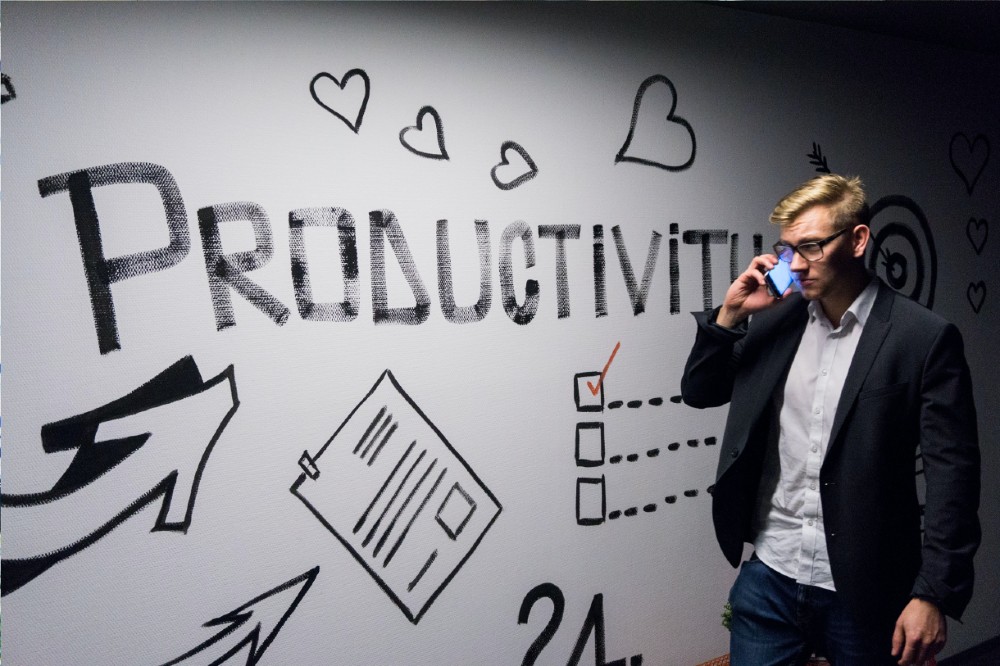You are struggling to focus like the rest of us. How do I know? Because you are reading this article… which you probably found through Twitter, Facebook, and/or the AGBeat site directly. It’s okay. You aren’t alone, and in this particular case, you are making good use of your time (as opposed to the multiple entertaining minutes I spent looking at sleepy babies on BuzzFeed today).
As I started my own business, I was forced to research, study, and ask as many people as possible how they have successfully won the battle that wages for our attention. The reality is that most haven’t – our culture is drowning in a sea of distraction. Studies reveal that we are interrupted every three minutes during work and it takes us 23 minutes on average to get back to the original task. The real kicker is that more than half of the distractions were completely self-inflicted.
Four non-traditional strategies
To add onto what we’ve previously outlined, here are four non-traditional strategies to leverage the way your brain is wired to move distraction into action.
1. More trees. Less brick.
Hang with me here. This is about to get crazy.
You know when you are completely unable to concentrate due to mental fatigue? Psychologists studied people just like you at that very moment. Group A then took a short walk through a busy downtown. Group B walked through various natural environments (parks, etc). Guess what happened? Group A’s walk did not help them at all upon returning to work, but Group B received significantly better results in their ability to focus on key tasks.
Even reviewing photos of nature can have the same effect, according to the Attention Restoration Theory. If your mind is in a constant state of chaos, review photos of nature, or take a walk through the local park. Your work will benefit.
2. Start by prioritizing your priorities
Your pre-frontal cortex is in large part the area of your brain responsible for focus. It’s an amazing muscle, but it’s a muscle that tires easily. Every time you actively push away a distraction, you are sapping resources that will reduce your ability to effectively do it the next time.
The solution? Start your day by setting your priorities, from the most mentally draining to the least, rather than on the basis of who wants a response fastest. Put the most mentally draining work at the early part of the day (assuming you don’t have a hangover).
Fight to keep the first two hours of work sacred. Ask for meetings to be later in the day so you don’t have your most precious mental resource robbed by a boss or colleague droning on about a subject that means nothing to you (probably using PowerPoint in a way that would make me want rip the projector’s power plug out of the wall).
3. Move the calendar front and center
Simon Reynolds, a friend and bestselling author of the book ‘Why People Fail’ offered this to me, and it’s been game changing.
While prioritized task lists are a huge step up from the ‘let my newest email tell me what’s important’ strategy, it’s not enough. Take your priorities and assign time chunks to cover each one. Your calendar, rather than your inbox or task list should now be the primary ‘screen’ on your computer.
As I use Google Calendars, I literally watch as the redline slides down my screen, reminding me that I am running out of time on this task before I must move to the next. For example, I have seven more minutes dedicated to finishing this article.
This causes my brain to release the right concoction of chemicals/neurotransmitters to work like I can’t procrastinate any more- I’m up against a tight deadline. Plus, I am leveraging what Jonah Berger calls game mechanics (or why I can’t quit you, Candy Crush!?).
4. Warm up the muscle
According to the last two rules, I should probably punt email and web surfing until I have completed the mentally exhausting tasks of my day. But what if something crazy has happened in the world?! Think of all the people who might have emailed or commented on my Facebook post? My social status and craving for stimulation is just too much to ignore after hours of being deprived due to my body’s ridiculous demand for sleep.
I have found that a short warm up lap is exactly what I need before I dive into a full day of mental Crossfit. I get my daily Texas Rangers updates, check out my inbox, take a shot of coffee, then get to the work of setting the day’s priorities. The key? I limit my time to a ten minute warm-up. The bell goes off and the sprints and metaphorical burpees begin.
The battle for attention
We are in a cultural battle for attention with a built-in faulty set of brain wiring. I have found these strategies to be particularly valuable for me. If you’ve read this far, odds are high you are in the top one percent in your focus skills. If you don’t mind, take one more minute to offer your solutions in the comments below.











































Sacha Joubert
July 17, 2013 at 5:59 pm
Great advice! I love the idea of seeing the red line moving, counting down the time. Now that’s very motivating!
Michael Bray
July 19, 2013 at 11:45 am
Do you realize how ridcuosly difficult it was to actually read straight through tbis wonderful article without clicking on all of the enticing links!? I am proud to say “I Did It” thanks to ….this wonderful article. When I went back through I only ended up clicking one link. Less loss of focus, but more rehab is still indicated! Sorry, gotta go…
doodlebug2222
August 4, 2013 at 3:17 am
I arrive to work early so I can review things from the day before to ensure I closed them out properly. I use Outlook to mark and categorize mail that comes in, I teach persons that send me incoming mail to ensure they have a “request for action” less I will consider it a FYI instead.
I also insist on email requests and refuse to take them over the phone, and I do not allow “parking” in my office or “question and answer time” w/o a 30 minute-1 hour meeting > which is also never counter as “request time”. They still need to make a formal request via email for the purpose of being tracked.
I have a shared calendar (SharePoint) and I echo my availability for meetings as well as times I block out and have no meetings – no disturbances.
I listen to music, close my office door almost all of the way shut and when persons do come into try to park or unofficially meet, I am kind and indicate I have a hard deadline I am trying to meet and can they send me a meeting invite so we can discuss it at length and I can then give them my undivided attention and I had them a request form so they can jot down if this is an official request.
Yes I insisist on all requests being on paper.. and I ensure it follows a specific format so all necessary information is there. This is to be sure what they are requesting is captured, completed and tracked.
My days go smoother – less distractions and everyone understands I can pull out old requests they made months ago if they need it… so.. they begin to see verbal requests are… a bit more shakey to work with and recall later. Fact is – I keep control and in this, I control my time and of course distractions.
Pingback: Procrastination expert shares advice on overcoming procrastination - The American Genius